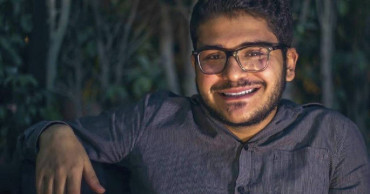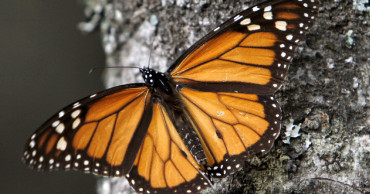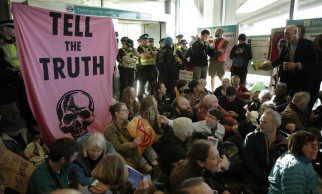activist
Meet the LGBTQ activist who challenged his Caribbean country’s anti-sodomy law and won
For years, Orden David was persecuted in his native Antigua and Barbuda — a frequent complaint by many LGBTQ people who fear for their safety across the conservative and mostly Christian Caribbean, where anti-gay hostility is widespread.
David was bullied and ridiculed. One time, a man stepped out of a car, made a comment about how a gay man was walking on the street late at night, then hit him in the head. More recently, another stranger struck him in the face in broad daylight, knocking him out. That's when he had enough.
Also Read: Biden signs gay marriage law, calls it ‘a blow against hate’
Facing ostracism and risking his life as the public face of the LGBTQ movement, David took his government to court in 2022 to demand an end to his country's anti-sodomy law.
"I realized that with our community, we've gone through a lot and there's no justice for us," Orden told The Associated Press. "We all have rights. And we all deserve the same treatment."
Last year, the Eastern Caribbean Supreme Court ruled the law unconstitutional. LGBTQ-rights activists say David's effort, with the help of local and regional advocacy groups, has set a precedent for a growing number of Caribbean islands. Since the ruling, St. Kitts & Nevis and Barbados, have struck down similar laws that often seek long prison sentences.
"It's been a legal and historic moment for Antigua and Barbuda," said Alexandrina Wong, director of the local non-governmental organization Women Against Rape, which joined the litigation coordinated by the Eastern Caribbean Alliance for Diversity and Equality.
"Our Caribbean governments are getting a good grip of what the world looks like and how we can reshape our history and … the future of the Caribbean people," Wong said.
The ruling said Antigua's 1995 Sexual Offences Act "offends the right to liberty, protection of the law, freedom of expression, protection of personal privacy and protection from discrimination on the basis of sex."
Also Read: Gunman kills 5 at Colorado Springs gay club, is subdued by patrons: Police
Antigua and Barbuda Prime Minister Gaston Browne told the AP that his government decided not to challenge the ruling: "We respected the fact that there should be no discrimination within society," he said. "As a government, we have a constitutional responsibility to respect the rights of all and not to discriminate."
The law stated that two consenting adults found guilty of having anal sex would face 15 years in prison. If found guilty of serious indecency, they faced five years in prison.
Such laws used to be common in former European colonies across the Caribbean but have been challenged in recent years. Courts in Belize and Trinidad and Tobago have found such laws unconstitutional; other cases in the region are pending.
Also Read: Daley protests LGBTQ+ intolerance at Commonwealth Games
Same-sex consensual intimacy is still criminalized in six Caribbean countries, according to Human Rights Watch and the London-based organization Human Dignity Trust. The countries include Dominica, Grenada, Guyana, St. Lucia, St. Vincent and the Grenadines, and Jamaica, which some LGBTQ-rights groups consider the Caribbean nation most hostile to gay people.
"Governments in these jurisdictions should be pro-active and repeal these laws now, instead of waiting for members of the LGBT community to force legal change," said Téa Braun, chief executive of Human Dignity Trust. "With three successful judgments last year and further legal challenges in the Caribbean ongoing, it is only a matter of time before these laws fall across the region."
Jamaica's government has argued that it doesn't enforce its 1864 anti-sodomy laws, but activists say keeping these laws on the books stokes homophobia and violence against the LGBTQ community in several Caribbean countries.
LGBT people in such countries, face "a constitution that criminalizes them on one end, and a religion that says they're an abomination," said Kenita Placide, executive director for The Eastern Caribbean Alliance for Diversity and Equality.
"It has created a culture of stigma and discrimination, which has now led to violence," she said. "And in each of those countries, including Antigua, we've seen LGBT persons who've fled because of certain levels of violence."
Growing up, Orden David was bullied in school and discriminated against outside its walls. People took photographs of him and posted them on social media, called him slurs and attacked him physically.
"What pushed me to go forward with this litigation case, to challenge the government, is that experience that I've gone through in life," David said, adding that in 2019 he was knocked out by a stranger who hit him on the face while he was working in a hospital.
Discrimination against LGBTQ people persists in the Caribbean. Some conservative lawmakers and religious leaders oppose the abolition of anti-gay laws invoking God in their arguments and calling gay relationships a sin.
"I don't think that God created man and woman to engage in that way," said Bishop Charlesworth Browne, a Christian pastor who is president of the Antigua and Barbuda Council of Church Leaders. For years, he has campaigned against easing the country's anti-gay laws.
"It's not just a religious issue. It's a health issue," Browne said. "It's for the sake of our children, the health of the nations, the preservation of our people."
Some major Christian denominations, including the Catholic Church, say all sexual activity outside of a marriage between a man and a woman is sinful. Other houses of worship, including many mainline Protestant churches and synagogues, have LGBTQ-inclusive policies.
When LGBTQ activist Rickenson Ettienne also was brutally attacked in Antigua for being gay, his church community sang and prayed for him outside the hospital while he recovered from a cracked skull. "It was traumatic," he said of the assault. "But even with that experience, I found out that there's humanity, there's the human side of people."
Although David didn't face outright intolerance at the Christian church where he grew up singing in the choir, he grew disenchanted by some parishioners who tried to introduce him to the scientifically discredited practice of so-called gay conversion therapy. He eventually stopped attending, but believes in God and prays at home.
"Christians need to realize that everybody's human at the end of the day. And if you're going to push Christianity and then think that being a homosexual is a sin … then you should put yourself in that same category, as a sinner," he said.
"Christians are supposed to love, accept and encourage people, not push people away … that's one of the things that I really don't believe in: When Christians use the word 'hate,'" said David. He has the Chinese word for "love" tattooed on his neck, and says that loving people is his "number one goal."
Working for Antigua's AIDS Secretariat, he tests people for sexually transmitted diseases, distributes condoms and counsels them on prevention, treatment and care. He's also president of Meeting Emotional and Social Needs Holistically, a group that serves the LGBTQ community. And he volunteers. On a recent night, he walked across dark alleys of downtown St. John's to hand out condoms to sex workers.
"It's important to offer the services to the LGBTQ community, and especially to sex workers," he said. "Because this population are more at risk."
2 years ago
13 BNP leaders, activists remanded in Sylhet
A Sylhet court on Wednesday placed 13 BNP and Chhatra Dal leaders and activists on a one-day remand in a case over alleged involvement in police assault and obstruction of government work.
Sylhet Kotwali police station arrested them on Tuesday and produced them in court seeking a five-day remand for each.
However, Sylhet Metropolitan Magistrate third court Judge Sharmin Khanam placed them a one-day remand each, said Sylhet District BNP General Secretary Emran Ahmed Chowdhury, who appeared for them at the court.
The accused are Sylhet Mahanagar Chhatra Dal joint secretary Abul Hossain, former co-organizer Md. Abdus Salam, Juba Dal leader Parvez Ahmed, Raju Ahmed, Chhatra Dal leader Kamrul Hasan, Goalabazar Union Chhatra Dal members of Osmaninagar Upazila Junaid Hossain, Saiful Islam, Md. Hafizur Rahman, former Publicity Secretary of Metropolitan BNP Shamim Mazumder, Joint General Secretary of Ward No. 3 BNP MA Lahin, Member of Ward No. 25 BNP Badrul Islam, Ward No. 27 BNP General Secretary Nazrul Islam, and Jasa leader Siraj Uddin.
On May 2, police arrested eight leaders and activists from a Chhatra Dal procession in the Chowhatta area of Sylhet.
Later, sub-inspector (outpost in-charge) Kazi Jamal Uddin of Kotwali police station's Shahjalal R. investigation center filed a case against eight named people and 150 to 200 unnamed individuals.
They were accused of assaulting police and obstructing government work. Police later arrested some others in that case.
In Sylhet, the police have arrested 50 leaders and activists of BNP and its associate organizations in various cases, said Emran Ahmed Chowdhury.
“Police said in the remand application in the court that the accused could do more sabotage. Interrogation on remand is necessary to obtain information from them. However, we said that no such incident happened as per the information given in the case details. There is no legal basis for putting the accused on remand in such cases," he said.
2 years ago
Anti-Terrorism Unit arrests convicted ‘Hizb ut-Tahrir activist’ in Dhaka
A team of the police's Anti-Terrorism Unit (ATU) has arrested a fugitive convicted member of the banned militant group Hizb ut-Tahrir from Dhaka's Natun Bazar area of Vatara thana on early Friday.
The arrestee was identified as Tamiz Ahmed Sabuj, 32, son of Shahjahan Hawladar, a resident of Taltoli thana of Barguna district. He has been absconding for the past 7 years in different parts of the country.
A press release of Anti-Terrorism Unit (ATU) said that Tamiz was actively involved in anti-state activities through creating intimidation and instability in order to establish ‘Islamic Khilafat’ in Bangladesh.
In 2014, Anti-Terrorism Unit arrested the convict while he was distributing banned militant group Hizb ut-Tahrir’s leaflets. But he jumped bail and remained a fugitive for 7 years.
He was conducting various anti-state and extremist activities for a long time. Legal processes are underway against the arrestee, said the press release.
3 years ago
Police: Munshiganj Jubo Dal activist Shaon died from head injury, not from bullets
Shahidul Islam Shaon, a Jubo Dal activist, who died following a clash with police during a BNP rally in Munshiganj's Muktarpur on September 21, died from “head injuries, not from bullet wounds”, Mahfuzur Rahman Al Mamun, superintendent of Munshiganj Police, said.
“It was mentioned in his death certificate that Shaon died after being hit by bullets but that is not true, and we are investigating why the death certificate says so,” he said while talking at a press briefing after receiving the post-mortem report.
The post-mortem and viscera reports were provided on Tuesday where it was mentioned that Shaon died as he sustained “head injuries during the clash”, he added.
On September 21, 50 people, including several policemen, were injured in a clash between police and BNP leaders and activists in Munshiganj’s Muktarpur over holding a rally of the party protesting price hike of fuel, daily essentials and the killing of three opposition leaders in Bhola and Narayanganj in police firing.
Shaon was critically injured during the skirmish as police tried to stop the protest rally.
Read: Police-BNP clash in Munshiganj: Injured Jubo Dal man dies at DMCH
He succumbed to his injuries the following day.
SP Mahfuzur Rahman said Shaon along with others were hurling brickbats towards police during the clash.
“At one stage, he fell while trying to bring a stick. Smoke was billowing at that moment which went viral on social media. He was wounded by bricks thrown by other Jubo Dal activists,” he claimed.
3 years ago
AL activist killed in post-poll violence in Pabna
An Awami League (AL) activist was killed in post-poll violence that broke out in the Nazirpur Hatpara area of Hemayetpur union in Pabna Sadar on Tuesday evening.
The deceased was identified as Shamim Hossain, 40, a supporter of defeated AL candidate in Hemayetpur and son of Nur Ali Pramanik of Nazirpur Hatpara.
According to locals, Manjurul Islam alias Madhu, the defeated chairman candidate who had the AL electoral symbol (boat), was having tea with his supporters at a tea stall where independent candidate Tariqul Islam Nilu Kha, along with his supporters including son Imran, arrived and started firing indiscriminately.
Shamim Hossain was shot dead on the spot.
READ: Clash between BNP factions: Ex-Jubo Dal leader stabbed in Pabna
Pabna Sadar Circle ASP Roknuzzaman said Shamim was taken to the hospital but the doctor on duty could only declare him dead.
Additional police have been deployed in the area in the wake of the attack.
READ: 3 die after drinking ‘toxic liquor’ in Pabna
4 years ago
Govt feels self-complacency working for only some people: Sultana Kamal
Noted human right activist advocate Sultana Kamal on Sunday criticised the current budget for ‘not having clear support plan’ for the disadvantaged community in this Covid pandemic, saying that the government feels self-complacency protecting the interest of some people.
“I would like to share my analysis that isolation has occurred between the government and the common people, which we’ve seen more acutely in this Covid situation,” she said at a media briefing.
Citizen's Platform for SDGs Bangladesh arranged the media briefing over “Implementation of National Budget 2021-22: What benefit will the disadvantaged people get?” through a virtual platform.
Sultana Kamal, also a member of the Citizen’s Platform, said, “Though we say that we are living in a democratic society….. But we have many words (questions) over the election, which is the first and foremost step for democracy.”
Also read: Country makes tremendous development in corruption: Sultana Kamal
“Questions can also be raised over how much we think those who govern the State as our men or how much they (Govt) think us as their men,” she said.
If the budget is evaluated from this perspective, there is isolation between the government and the common people or community particularly the disadvantaged people, she said adding that the government may have relations of interest with the people who are surrounding it or who assist it politically and socially or any other ways.
“We’re in such a political system that if those of us who are in charge of governing the State can protect the interests of some people, they feel self-complacency. They get praises from them (the particular section of people) and can understand that what they (government) did is a very wonderful job,” said Sultana Kamal.
Noting that the national budget for 2020-21 had to be adopted last year amid unknown and sudden Covid-19 situation, she said this time the government got a full year before the preparation of the budget, but the new problems caused by the pandemic were not recognised there.
Also read: ‘Indigenous leaders removed from decision-making in CHT’: Sultana Kamal
She said it is as usual budget having nothing for the recovery from the Covid-19 fallout. “Some ad-hoc based steps were taken and works have been done, but the steps, which are very essential to rebound from this distress, unfortunately remain missing here,” she said.
“Some 3-3.5 crore people have become poor afresh. We’ve not find any clear plan to pay attention to them in the budget,” said Sultana Kamal, also the Executive Director of Ain o Salish Kendra.
Convenor of Citizen’s Platform Dr Debapriya Bhattacharya said the government should provide direct food and cash support for the disadvantaged people as they may be awaiting tougher situations in the current fiscal year than the last fiscal.
“We fear that the disadvantaged community may be more distressed in 2021-22. Because, we fear that the pressure would increase on them further for the current pandemic situation,” he said.
Alongside providing free foods, the government also needs to expand open market sale (OMS) of foods at subsidized prices up to grassroots level in order to keep food price stable as the food inflation has recently witnessed a big jump, said Dr Debapriya.
“If we don’t provide direct cash support to them, not only the community will become poorer or deprived, but also their next generation will face malnutrition, physical and mental disabilities. It will emerge as a big national problem in future,” he said, adding that some 80 per cent people cut down their food expenses according to a recent survey.
Noting that the government stimulus packages, he said though the government has so far taken 30 Covid-related support interventions (including five new ones) amounting to Tk 128,194 crore, there is a very low share of fiscal and food support compared to hybrid ones (subsidized and interest based stimuli).
He said there are 13 fiscal and 4 food support interventions accounting for less than 20.5 per cent of the total allocation, while hybrid amounting to nearly 79.53 per cent.
Besides, nearly 39 per cent of fiscal stimulus packages were disbursed, while over 75 per cent of hybrid stimulus packages were disbursed within June 2021, he noted.
Dr Debapriya said the targeted GDP growth rate for 2020-21 fiscal was revised down from 8.2 per cent to 5.2 per cent, but the final figures would obviously be lower.
Prof Mustafizur Rahman, a member of the Citizen’s Platform said it is essential to strengthen direct cash transfer and OMS programmes in the current fiscal year just not considering the present food inflation rate.
“Rice prices witnessed over 20 per cent hike last year. If I say now that the inflation rate is 4-5 per cent, it will not give us a real picture,” he said, adding that the marginalized people are facing trouble to purchase food due to lower income and food price hike.
Besides, members of the Citizen’s Platform Dr Iftekharuzzaman, Shaheen Anam, Rasheda K Choudhury, Asif Ibrahim and Dr Mustaque Reza Chowdhury also spoke on the occasion.
4 years ago
Hong Kong democracy activist Agnes Chow released from jail
Hong Kong pro-democracy activist Agnes Chow was released from jail Saturday after serving more than six months for taking part in unauthorized assemblies during massive 2019 anti-government protests that triggered a crackdown on dissent in the former British colony.
Chow, 24, was greeted by a crowd of journalists as she left the Tai Lam Center for Women. She transferred from a prison van to a private car without making any remarks.
Only a small group of supporters were on the scene, an apparent reflection of the government’s threats to jail those it deems in violation of a sweeping national security law that Beijing imposed on the territory a year ago.
READ: Hong Kong vigil organizer arrested on Tiananmen anniversary
The legislation has resulted in the arrests of leading democracy activists including Joshua Wong and Jimmy Lai, who are serving prison terms. Others have sought asylum abroad. Critics say China is now routinely violating commitments it made to preserve freedoms promised to Hong Kong for 50 years following the handover to Chinese rule in 1997.
Chow came to prominence while still a student during the 2014 “umbrella movement” calling for universal suffrage, alongside Wong and Nathan Law, who was granted political asylum in Britain in April.
She has a large following in Japan, frequently visiting the country and posting on Twitter in her fluent Japanese.
The 2019 protests began as peaceful marches against proposed legislation that could have seen criminal suspects sent to China to face possible mistreatment and unfair trials. Though the legislation was withdrawn, protests swelled to demand universal suffrage and an investigation into police abuses, becoming increasingly violent as demonstrators responded to harsh police tactics.
China fought back with the national security law, which has snuffed out dissent in the semi-autonomous territory. Defenders say it intends to ensure those running the city are Chinese patriots committed to public order and economic development.
China also overhauled Hong Kong’s Legislative Council to give pro-Beijing delegates an overwhelming majority. Hong Kong’s media outlets are now almost completely dominated by pro-Beijing business groups and even independent booksellers have become rare. The national security law has also given authorities broad powers to monitor speech online, making it difficult to organize opposition gatherings or even express views critical of the government or Beijing.
An annual candlelight vigil for victims of the bloody suppression of the 1989 pro-democracy movement centered on Beijing’s Tiananmen Square was canceled for the second time this year. Hong Kong censors this week were also given the power to ban films that endanger national security, prompting concerns that freedom of expression is being further curtailed in a city once known for its vibrant arts and film scene.
READ: China may buckle down to reunify Taiwan after crackdown on Hong Kong
Chief Executive Carrie Lam, who is under U.S. sanctions, has been the face of the crackdown on dissent, although she is believed to be acting entirely on orders from Beijing, whose Communist Party leaders have long regarded Hong Kong as a potential incubator of opposition that could spread through the country.
4 years ago
Egypt's top prosecutor denies activist was tortured
Egypt's chief prosecutor on Sunday denied allegations that the police tortured a human rights activist and vocal critic of President Abdel Fattah el-Sissi.
6 years ago
Mexico questions police over disappeared butterfly activist
Prosecutors in western Mexico have called in 53 local police for questioning in the Jan. 14 disappearance of a long-time promoter and protector of the wintering grounds of the monarch butterfly.
6 years ago
Climate change activist climbs on plane, others stop traffic
London, OC T 11 (AP/UNB) — Protesters in New York City brought traffic to a standstill in the city's busiest hub and an activist in London climbed atop a plane as climate change demonstrators entered the fourth day of rallies around the world.
6 years ago

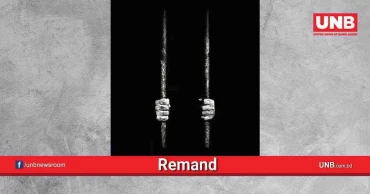
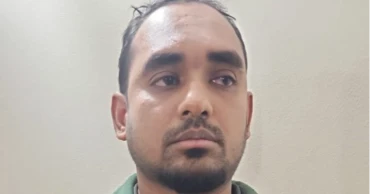



.jpg)
